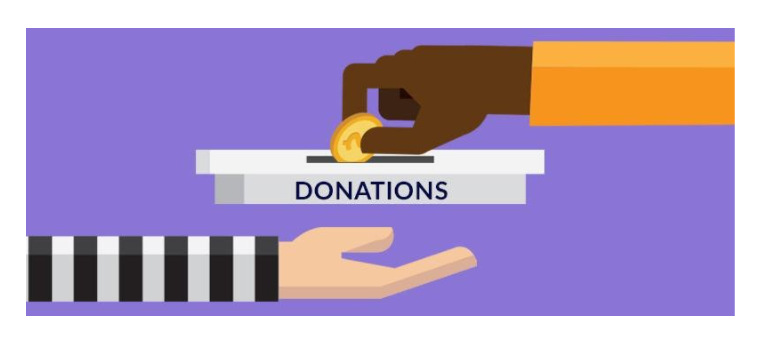Compliance in “Non-Traditional” Organizations
Over the past two years, we have seen a great number of courses, trainings and seminars on the importance of Compliance in the public and private sectors. Without a doubt, its approach is an exciting issue that no one wants or should remain apart to. But we note that, in general, the culture of integrity and compliance are focused on large companies or small and medium-sized businesses (SMEs). But what about the other organizations that are also reached by the Corporate Criminal Responsibility Act (No. 27.401)?
On this occasion, we will refer to those “non-traditional” organizations such as civil associations (NGGs), foundations, charities, cooperatives, building administrations and religious entities (of any creed).
Question: Is an NGO for charitable purposes or a church reached by Law 27.401?, The answer is: yes, indeed they are, and in reference to the prevention of risks of: corruption, bribery, influence-trafficking (national and transnational), concussion, use for the benefit of money or third-party goods, or even the production or presentation of apocryphal or adulterated balance sheets.
But at the same time, such “non-traditional” organizations are also reached in Argentina by the regulations of the FIU (Financial Information Unit, or UIF in Spanish) on conduct that may involve a risk of money laundering or terrorist financing. Resolution 30/2011 includes as subjects “legal persons receiving donations or contributions from third parties”.
Let us take a closer look at this resolution, this resolution in Article #2, states: “For the purposes of this resolution, Compulsory Subjects shall mean: legal persons receiving donations or contributions from third parties in amounts greater than one hundred and ninety-six thousand argentine pesos ($196,000) or the equivalent in kind (valued at market references); in a single act or in several acts that individually are less than one hundred and ninety-six thousand pesos ($196,000) but together exceed that figure, carried out by one or more related persons, in a period not exceeding thirty (30) days.”
All these non-traditional organizations are subject to the regulations mainly by the management of third-party funds, such as memberships, donations or contributions in both cash and material goods, which are most often made anonymously. This creates a significant risk given the prevention of situations that pose risks of money laundering, assets hiding or terrorist financing.
Several investigations, at the local and/or regional level, have served to disrupt the action of such organizations involving cases of corruption or money laundering. These cases, some well-known, have been initiated on the basis of anonymous complaints from their own members or on suspicions arising from allegedly lawful conduct by these organizations, such as acquisitions of property or certain investments in financial markets. Organizations that are determined to violate the law avoid reporting actual donations received or do so below the established limit.
On the other hand, the risk of corruption between an employee of such associations and a public official may be latent, and should also be regarded as a concrete and feasible risk of, for example, the payment of a bribe to a public official to facilitate the completion of a particular procedure.
For cases where organizations have developed and implemented an Integrity Program, as mentioned by the Act, this will allow them to avoid or minimize risk, or mitigate the harm when the risk has occurred. In the face of the occurrence of a crime, an organization with a robust Integrity Program has significant advantages over an organization that does not have it.
The benefits of having the Integrity Program could, according to the consideration of a prosecutor linked to the case – mean a reduction in the penalty or the exemption from it, if certain additional factors such as self-reporting and/or return of the goods or money affected by that crime are met.
An advantage of such organizations, whether in size or complexity, is that the design and development of an Integrity Program is less complex than for a large or medium-sized company. In accordance with Article #23 of Law 27.401, the content of the Program should include at least: (a) a code of ethics or conduct, (b) integrity policies and procedures for all employees, and (c) regular training on the program itself and its contents.
The development of policies or procedures should focus specifically on those that could face such organizations. In these cases, they are limited to anti-corruption, anti-discrimination, contributions and donation policies (the most important for this kind of organizations) and interaction with the public sector, beyond others that can be identified in the organization’s own risk analysis.
Resuming, neither the size, complexity nor legal nature of an organization constitutes an obstacle to not developing the Integrity Program; on the contrary, it should be considered as a competitive advantage or an added value for the organization. Just as ISO certification has been an added value from many years ago, the Integrity Program becomes identically valued today, with the addition that a compliance program can help an organization in a concrete and real way, if it is threatened or impacted by a complex risk.
Let us remember that, according to Law 27.401, the penalties for these crimes range from the application of economic fines of between 2 to 5 times the amount involved, the suspension of the activities of the organization for up to 10 years, and even the possible dissolution and liquidation thereof.
G5 Integritas has highly trained professionals who can assist you in designing the best Integrity Plans, tailored to your needs. If you are interested in optimizing your organization’s ethical and integrity environment, we invite you to contact us at:
contactBA@g5integritas.com. Or visiting our website at: www.g5integritas.com


0 Comments